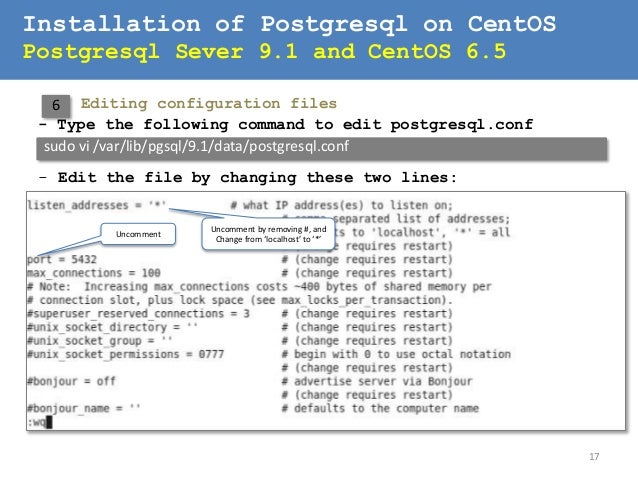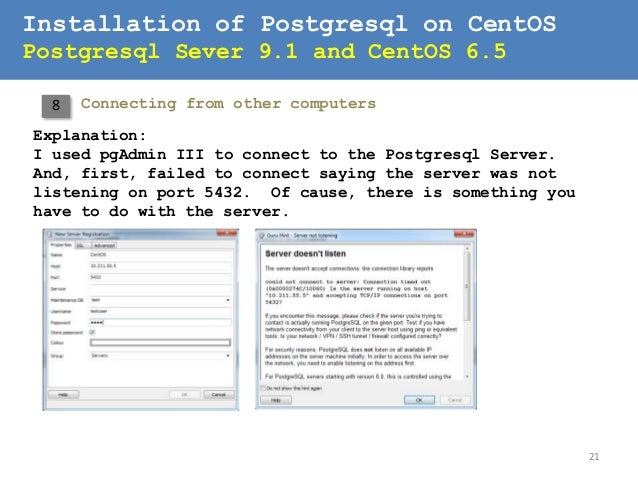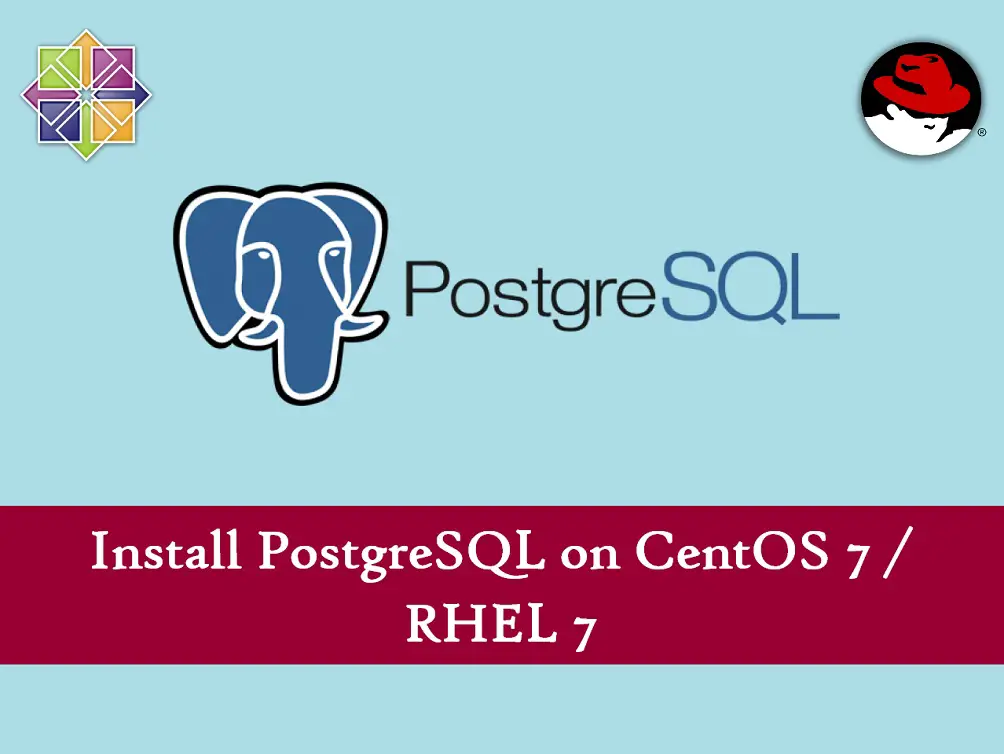

Or if you are using a server connect to it using ssh. Important, if we are going to store large quantities of records. And it is recommended to install it because thanks to it, we can enjoy interesting news and improvements in the performance of the application. However, we already have available version 13. Install PostgreSQL 13 on CentOS 8 / RHEL 8 / Oracle Linux 8īoth RHEL 8 and its derivatives include PostgreSQL 10 in their repositories. At the end of the post, you will have a PostgreSQL installation ready to start working. In addition, we’ll show you the most basic configurations.


So, in this post, I will show you how to install PostgreSQL 13 on CentOS 8 / RHEL 8 / Oracle Linux 8. Despite easy installation, not always many users do. Its robustness, high availability, and ease of installation make it perhaps the most advanced in the world. a) GNU make version 3.PostgreSQL is one of the most popular database management systems in the world. The following packages are required to build PostgreSQL. PostgreSQL can be run on most modern Unix-compatible platforms, and this host CentOS 7.6 meets the requirements. In this article, we will do a source installation of PostgreSQL 13.3 on a CentOS 7.6 host and use it briefly. This is achieved by starting a new process for each connection, and the new process does not affect the work of the original postgres process. The PostgreSQL server can handle concurrent connections from clients at the same time. The server and client processes can be located on the same host or on different hosts, and if they are located on different hosts, they communicate over TCP/IP. The server-side process (called postgres) manages the database files, receives connections from the client, and performs database operations on behalf of the client the client-side process initiates connections to the server and sends database operation commands. PostgreSQL is an open source Object-Relational Database Management System (ORDBMS), based on the original POSTGRE source code from the University of California, Berkeley, which supports most SQL standards and offers many modern features.


 0 kommentar(er)
0 kommentar(er)
